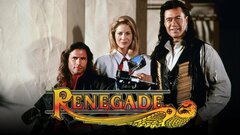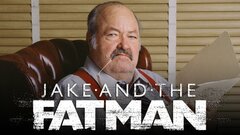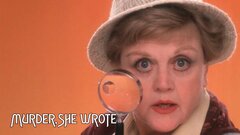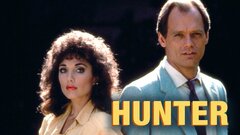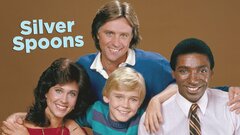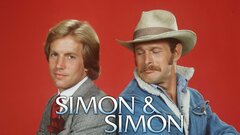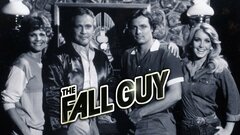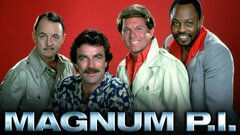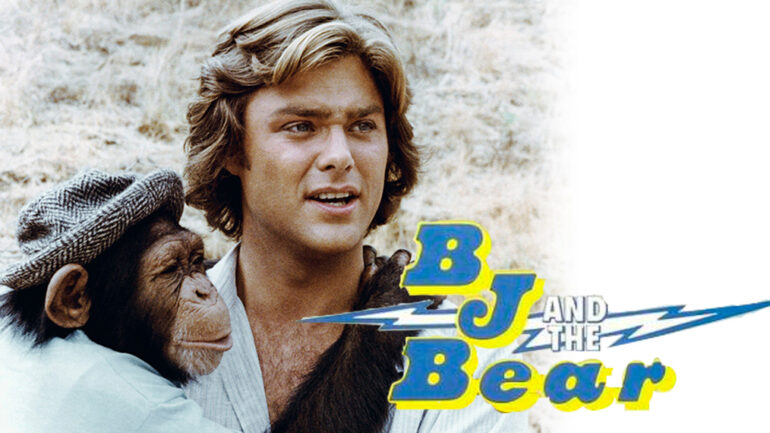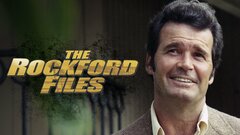Once one of the most familiar faces in American advertising, model-turned-actress Erin Gray would make an even more lasting impression as the smoldering, curvaceous yet socially inept Col. Wilma Deering on the late-1970s science fiction series, "Buck Rogers in the 25th Century" (NBC, 1979-1981). A supermodel even before that ascription became common place, Gray's countenance would be nearly ubiquitous in the early 1970s in a raft of ads, one of the first Sports Illustrated swimsuit issues, and a L'Oreal cosmetics spot in which she became the first to utter, "I'm worth it." She made the successful jump into acting and landed with a splash as Buck Rogers' commanding officer, followed up by a longer run on the sitcom "Silver Spoons" (NBC, 1982-87).
Though she would go on to a varied career in television movies and indie features, Gray would remain a cult favorite in the sci-fi community as arguably one of the first authoritative female action heroines on American television. For fanboys, however, Gray would be remembered best for filling out skintight spandex uniforms better than anyone on television, endearing her to viewers whose admiration of her physical attributes were not easily forgotten.
She was born Jan. 7, 1950, in Honolulu, HI to photographer Diane Gray and businessman Daniel Gray. Her parents split up when she was eight years old - Gray later admitted her father physically abused her and her mother - and her mother sent her to live with her grandparents in Palm Springs, CA. Her mother would remarry, prompting their reunion and resettlement in the Bay Area's Marin County, but it would prove a less-than-happy household.
Erin's stepfather molested her and she would soon be living in another broken home. Her mother capitalized on her daughter's ravishing looks by sending off some photos of her to a clothing company, netting her first work as a model.
While attending Redwood High School, Erin fell in love with fellow student Ken Schwartz, two years her senior and a problem student. It proved a tempestuous relationship, one her mother tried to curtail by moving to Los Angeles.
Schwartz joined the army and they lost touch during his tour in Vietnam. By the time he rotated home, Gray, 18, had enrolled at UCLA and seen her career pick up, including a stint as a dancer on the short-lived Rick Nelson-hosted variety show, "Malibu U." (ABC, 1967).
They reunited and married on a lark, soon moving to New York City, where he became a successful real estate executive and her modeling work jumped to a new level. She appeared in the 1969 Sports Illustrated swimsuit issue and ads for Virginia Slims, Max Factor and Bloomingdale's.
She also inaugurated the longtime L'Oreal catchphrase, "I'm worth it," as well as sensually delivering another famous tagline, "My men wear English Leather or they wear nothing at all." But her emersion in New York culture prompted a career shift consideration; she began taking acting classes, eventually moving back to Los Angeles with her and Schwartz's young son.
She won a supporting role as an intrepid journalist unearthing a terrorist plot in the Universal miniseries "Evening in Byzantium" (NBC, 1978), resulting in the studio signing her to a contract.
The night the "Byzantium" shoot wrapped, Gray received an early morning call to audition in a matter of hours for a new sci-fi movie, "Buck Rogers in the 25th Century." Exhausted, she brought an unplanned detachment to the audition for the role of Col. Wilma Deering. Producers thought it worked with the character, written as a human raised by computers in a post-apocalyptic world, stern and no-nonsense professionally but naïve, awkward and emotionally innocent as a social being, maturing via interaction with maverick Capt. Buck Rogers (Gil Girard), himself rescued from suspended animation.
Creator Glen A. Larson - who had created "Battlestar Galactica" (ABC, 1978-) the previous year - originally made the movie as a TV series pilot, but with America still amid its post-"Star Wars" (1977) sci-fi wave, Universal released "Buck Rogers" as a theatrical film in the spring of 1979.
Though it proved far from a blockbuster, NBC greenlit the "Buck Rogers" series for the next fall, serializing Buck, Wilma and wisecracking sidekick robot Twiki's adventures defending Earth, often against the Draconian Empire, whose narcissistic princess initially competed with Wilma for Buck's affections.
Something less than a hit as well, the show drew well with young male viewers, due in some part to the array of form-fitting uniforms worn by the former supermodel.
But all was not well on set. Girard had issues with the light-hearted nature of the weekly adventures, and after an actor's strike delayed the next season. It returned in a completely retooled iteration recalling classic "Star Trek" (NBC, 1965-68), with Buck and Wilma now among the crew of a starship searching for lost Earth colonies and facing darker, allegorical dramas and strange species each week. To Gray's chagrin, also gone was much of her own character's arc of discovering her own humanity, though the second season implied a more romantic tenor to Wilma and Buck's relationship.
But the show progressively lost viewers and NBC axed it before the final show was even shot. In the wake of the show's cancellation, Gray plotted a new career twist - comedy. She did a turn in a small L.A. theater production of Neil Simon's "California Suite," just to establish her bona fides in the genre.
She would remained in demand for light-dramatic outings, notably made-for-TV movies such as "Born Beautiful," in which she played her own friend Betsy Cameron, a model who found a second career as a photographer, and featured guest shots on popular network shows like "Magnum, P.I." (CBS, 1980-88) Finally, a shot at comedy presented itself to the actress.
She returned to NBC in 1982 with "Silver Spoons," playing Kate Summers, the buttoned down executive assistant to an immature toy magnate (Joel Higgins) forced to assume responsibility after discovering he has a son (Ricky Schroder) by a brief previous marriage.
Gray often played the voice of reason as the two navigated their way to a working relationship, and eventually Kate married Higgins' character and assumed a stepmother role. The show spent four years on NBC and, after its cancellation, was picked up by Columbia Pictures Television to be sold into first-run syndication for its final season.
Meanwhile, Gray became much in demand as a guest star, with guest parts throughout the 1980s on a who's who of the period's action-dramas, among them "Simon & Simon" (CBS, 1981-89), "Vega$" (ABC, 1978-1981), "The Fall Guy" (ABC, 1981-86), "Hotel" (ABC, 1983-88), "Murder, She Wrote" (CBS, 1984-1996) and "Hunter" (NBC, 1984-1991).
She would also do her share of television movies, such as "Addicted to His Love" (ABC, 1988), "Laker Girls" (CBS, 1990) and the torn-from-the-headlines, "Honor Thy Father and Mother: The True Story of the Menendez Murders" (Fox, 1994), in which she played the D.A. prosecuting the murderous brothers.
Behind her work, however, Gray's marriage was deteriorating. She eventually suffered an emotional breakdown, with a friend driving her to the venerable abused women's shelter Haven House, where she sought counseling. Realizing she was repeating her mother's abusive history, she divorced Schwartz in 1990, and would adopt Eastern philosophy and meditation disciplines, including Tai Chi, to help rebalance her life.
The next year, Gray married cinematographer Richard Hissong and would go on to become a board member for Haven House. She returned to series TV by way of recurring and typically less sympathetic roles: in the syndicated hit "Baywatch" (1989-2001), periodically popping up as David Hasselhoff's boss; in the ABC spin-off soap "Port Charles" (1997-2003) as an icy schemer; and in the NBC crime drama "Profiler" (1996-2000), in which she played a congresswoman.
Gray's brief but iconic impact on the sci-fi world would also bring her back to the genre as a featured guest star, as with the two-hour finale of the short-lived "Starman" (ABC, 1986-87), the syndicated "Superboy" (1988-1992) series, and the steamy horror anthology "The Hitchhiker" (HBO/USA, 1983-1991); as well as a succession of B-grade features and TV movies, as with the misleadingly named franchise entry "Jason Goes to Hell: The Final Friday" (1993), the violent rogue-cyborg outing "T-Force" (1994), and Sci-Fi Channel flicks such as the "Official Denial" (1994) and "Ghouls" (2008).
In 1998, she and co-author Mara Purl would publish, Act Right: A Manual for the On-Camera Actor, a practical handbook for actors just beginning their careers. Through the early years of the 21st century, Gray's graceful aging would see her in more mature roles in a spate of low-budget indie films, often in attractive supporting-mom or no-nonsense authority-figure roles, with some non-type exceptions: as the better half a husband-wife hit-team in "Caught in the Headlights" (2004) and as a hard-driving musical talent agent helping a middle-aged woman realized belated dreams of a singing career in "Siren" (2006).
Gray also balanced out showbiz with teaching Tai Chi classes in the L.A. area, starting her own business and stepping her Haven House involvement up to become spokeswoman for the National Coalition Against Domestic Violence, earning a number of community citizenship accolades for her off-camera work - all the while raising her daughter by Hissong, Samantha, who inherited her mother's stunning looks and went into acting as well.
Her business, Heroes for Hire, played up her ongoing adulation among the sci-fi community, whose frequent regional conventions still found her much in demand. Through such connections, she facilitated her former co-star Girard's appearance at one convention, resulting in him insisting she take the standard booker's percentage fee. Gray subsequently started Heroes for Hire as an interlocutor agency booking sci-fi, horror and comic-book related celebs for appearances at just such events, with a client list including such favorites as Stan Lee, Elijah Wood, Ron Perlman, Linda Blair, Wes Craven and Jeri Ryan, among many others.



































